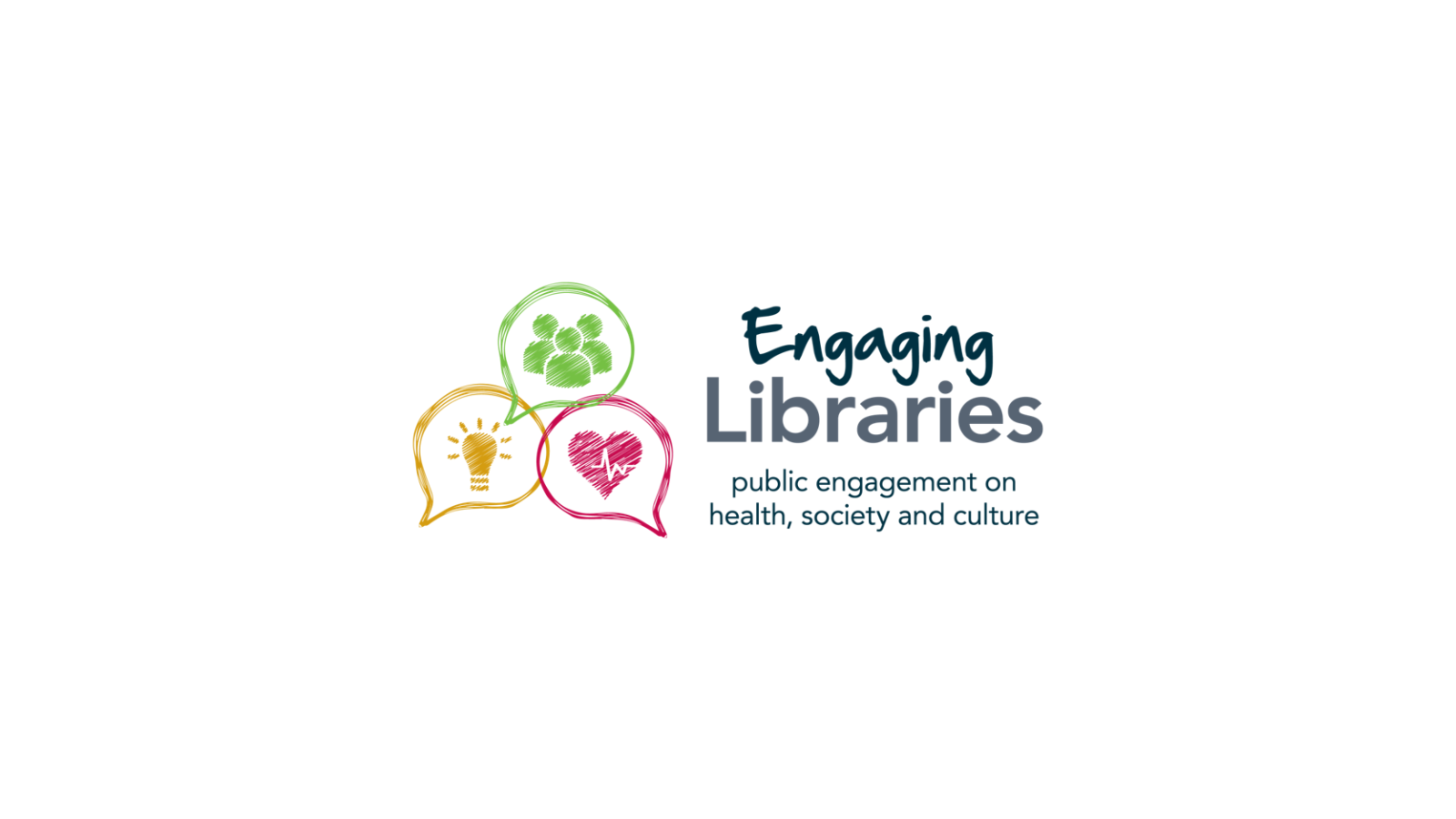An update on Engaging Libraries

- By Rachel Heydecker, Carnegie UK
- 18 August 2021
- 9 minute read
Over the course of our previous strategic plan, Carnegie UK delivered a range of public library focussed programmes, recognising libraries’ potential to improve wider social, cultural and economic wellbeing. As we embark on a new strategic plan and a more explicit focus on wellbeing, we will build the learning from our work with public libraries into our evidence base and future programmes.
We will continue to run our Engaging Libraries programme until November 2021, as participating projects were disrupted due to the COVID-19 pandemic and restrictions on opening of public libraries. After the projects have completed their public engagement activities we will bring together the learning from the programme to provide a legacy for public engagement in the public library and higher education sector.
Engaging Libraries supports public libraries to work with universities to develop and deliver public engagement activities on research on health, society and culture.
The programme is a partnership between the Carnegie UK Trust, Wellcome and the Wolfson Foundation. There are 14 Engaging Libraries projects, based in 16 library services across the UK and partnered with a range of universities and community partners. The opportunity for libraries and universities to work together to connect with communities is one that has become increasingly relevant and valuable during the past 18 months, despite the challenges that COVID 19 has presented.
Engaging Libraries has three core aims:
- Energise and empower people through engagement with research about health, society and culture in one of the following ways:
- Enable people to access, use and respond to research
- Enable people to value and think critically about research
- Enable people to play a role in formulating research
- Enable public libraries to build upon and explore their civic role as safe spaces for participation and engagement with research.
- Facilitate partnerships between public libraries and universities or Independent Research Organisations (IROs).
During 2020, most projects postponed activity due to COVID-19, however two projects delivered activities digitally during the first national lockdown. We have published a leaflet on digital public engagement, which shares their learning and tips for others here.
As libraries adapted to the changing context, projects have adjusted their plans to incorporate digital and socially distanced public engagement activities. They are at different points in delivery, and you can read more about them below.
AccessLab for Libraries: Falmouth Library
This project ran online workshops bringing scientists and citizens together to access research around climate, environment and health. The library service collaborated with the European Centre for Environment and Human Health at the University of Exeter, as well as FoAM – a non-profit organisation bringing together art, science, nature and everyday life. The project engaged the public through workshops where they had the opportunity to gain skills to access and use scientific research in their everyday lives. You can read about the changes to the project due to COVID-19 here and a review of all three workshops here. The delivery phase for this project is now complete.
Bumping Spaces: City of London Libraries
This project is exploring the concept of ‘bumping spaces’ as an antidote to social isolation, and the potential for libraries to be accessible bumping spaces. The library is working with researchers from Goldsmiths University to engage local communities with research in this area. Working with an organisation called Made by Play, conversations will also explore the possibility of facilitating low-barrier play spaces and playful activations to help library users make small social connections in the library. You can read more about the project here.
Fake News: What is it and how to avoid it: Treorchy Library
This project looks at the topic of fake news, aiming to improve the critical thinking skills of participants and draw on the library’s local history collection to explore whether misinformation is in itself a new concept. The library service is working with academics from the University of Liverpool. The project has developed a booklet for distribution through the click and collect bags, which will be followed up with a video project. You can view the fake news booklet here.
Language Diversity in the City: Manchester Libraries
This project engages the community with research around multilingualism, and invites them to access and reflect on research on Manchester’s language diversity. Informed by research from the University of Manchester’s Multilingual Manchester Research Unit, the project plans to engage the public through workshops, debates, arts activities and exhibitions through a blend of online and in-person engagements.
Something in the Air?: Calderdale Libraries
Focussing on the town of Sowerby Bridge, this project is engaging the public with research around air quality and health, in partnership with researchers at the University of Manchester. The project provides the opportunity for residents to borrow and experiment with 2 types of portable air quality monitor, measuring indoor and outdoor air quality, and to share findings. There will also be a series of public events to learn from specialists and raise questions, including those arising from use of the monitors. A parallel project is running with a local primary school. You can view the project’s Facebook page here.
Lothian Lugs: West Lothian Council
Lothian Lugs is a collaboration between West Lothian Libraries and Heriot Watt University. It is focused on listening to communities, and begins by facilitating a series of opportunities for researchers to listen to local people to find out how they feel about the research being carried out in Universities, how it affects them and what areas they would like to know more about. A programme of activities will be designed as a result, to showcase the most popular research subjects chosen by the local communities. Community focus groups will help to ensure a sense of ownership. Topics explored might include brain ageing, mental health, social disadvantage, human-robot interactions, health technologies and age friendly city design, to name a few.
Navigating Information in the Era of Media Manipulation: London Borough of Sutton
In Sutton, the team will work in consultation with their target audience of pre-teens to create an engaging, fun and creative video game and supporting educational resource pack, which addresses the urgent question of how we navigate and consume misinformation in an increasingly digital age. The library service is working in partnership with an academic from the University of Birmingham. You can play the News Flash! game here.
Pause not Full Stop: ONFife Libraries
This project aims to encourage people to challenge their own and society’s view of the menopause. The library service is working with an academic from Bristol University and Tricky Hat productions to deliver the project. The project is engaging the public through creative activities, drama and comedy, hoping to encourage discussion about this subject which can still remain a taboo.
Place Shapers: London Borough of Camden
Place Shapers will engage people from three local areas in Camden to discuss the past, present and future of their communities. The activity will be drawn together in a celebratory event and an exhibition touring libraries in the area. The library will work with UCL’s Culture department on this project.
Sharing Stories: Glasgow Libraries
Sharing Stories is aimed at ‘literacy hotspots’ in Glasgow and will encourage families to connect with research about how children’s literacy develops. Academics from the University of Edinburgh and the University of Dundee are engaged with the project. The team are working to adapt the project to the digital environment in light of the Covid context and are co-producing material which can be given to all new parents as part of the Every Child A Library Member initiative.
Telling the Tale: London Borough of Hammersmith and Fulham
Telling the Tale combines self-care and storytelling. The project will include socially marginalised audiences and using an overall concept of storytelling, will work with artists, researchers and audiences to create stories in many different formats including spoken and written words, photography, film making, animation and exhibition curation. There will be a series of collaborative story-telling and story-making events. This project is designed and delivered in partnership with the Self Care Academic Research Unit at Imperial College London and the London School of Medical Sciences.
Tickets to the Afterlife: Redbridge, Newcastle and Kirklees Library Services
Exploring the concept of libraries as ‘death positive’ spaces, this is a joint project which allows Redbridge Libraries to share knowledge, resources and contacts with colleagues in other parts of England based on their Engaging Libraries Phase 1 project. Together Redbridge, Newcastle and Kirklees library services are investigating whether people’s attitudes to death change depending on where they live, on their cultural backgrounds or both. A research partnership with academics at the University of Northumbria is in place for the project across all library services involved. The project engaged the public online through ‘death cafe’ events and author events during the 2020 lockdown. You can read about the learning from these events here. The team are running further events during 2021, and you can see more on their project page.
Together: Western Isles Library Service
This project is exploring community connections on the Western Isles before and after the lockdown, and celebrating local stories, creativity and culture as a way of connecting with each other. It is a partnership between the library service, the Division of Rural Health & Wellbeing at the University of the Highlands & Islands and Science Ceilidh. The project will involve the mobile library service in order to reach, engage and empower rural communities to inform future research. You can see more on their website.
Turning Heads: Hair as culture and identity: Libraries NI
This project explores the idea of how hair shapes people’s identity to challenge preconceptions and stereotypes across communities and cultures. The library service is working with various partners from the University of Ulster, and will use participatory workshops and an exhibition of socially engaged photography to engage the public.
Next steps
Once the projects have completed their public engagement activities in November 2021 we will share and embed relevant learning and tools in the public library and higher education sectors.
Help us make the case for wellbeing policy
Keep in touch with Carnegie UK’s research and activities. Learn more about ways to get involved with our work.
"*" indicates required fields
